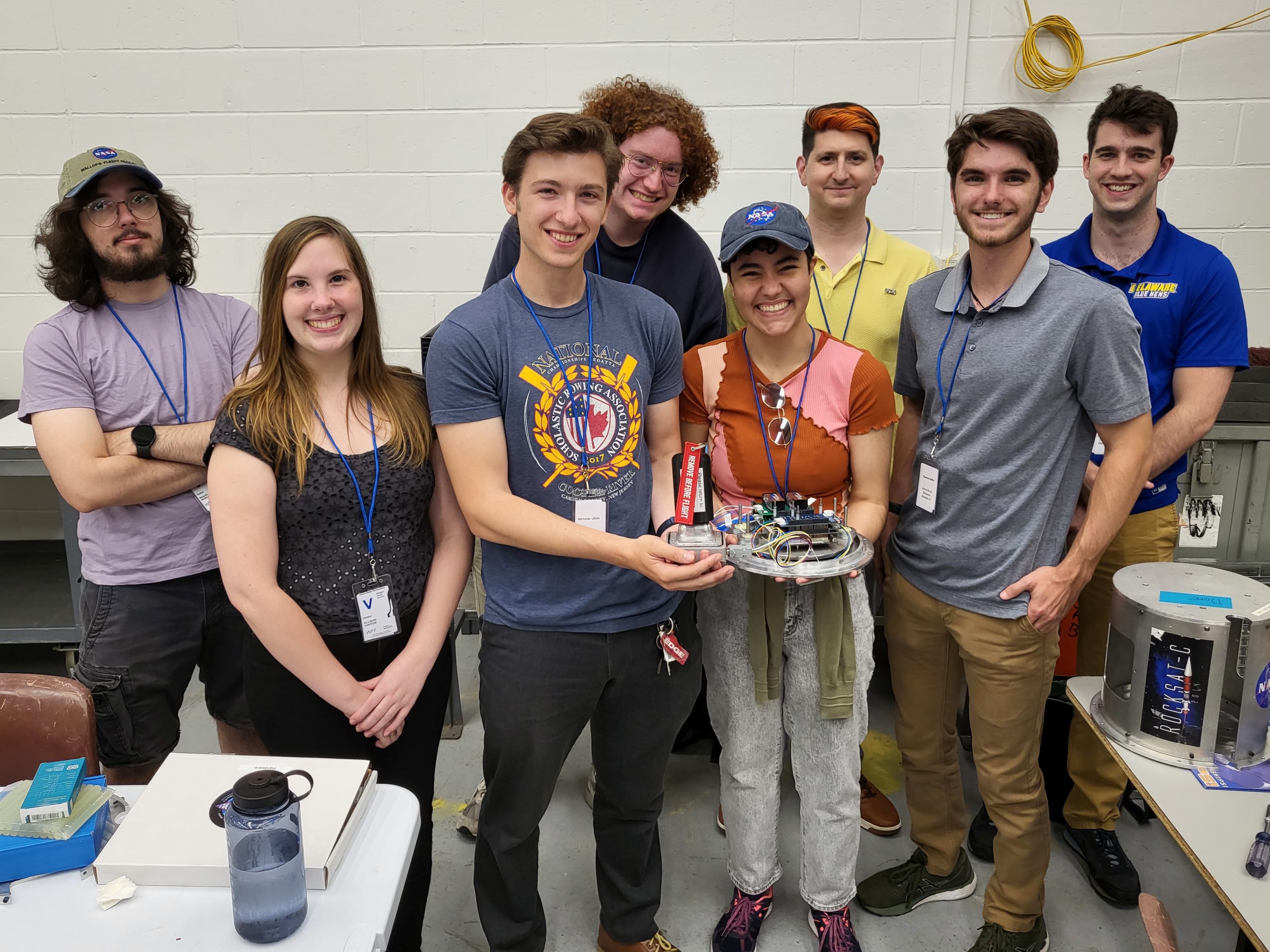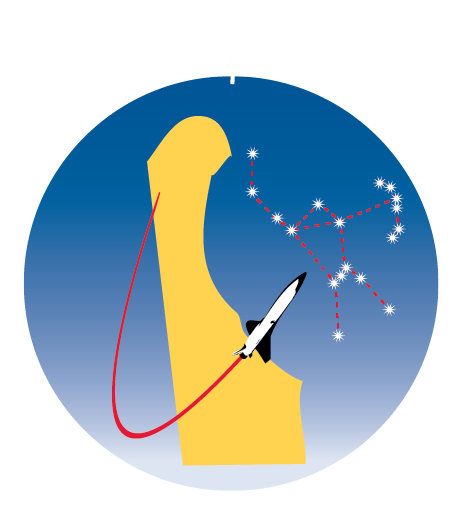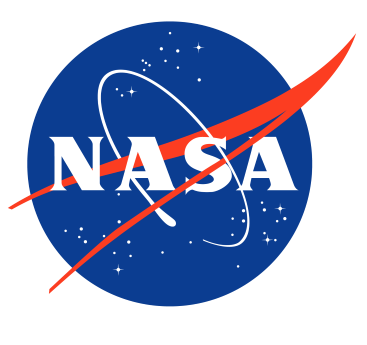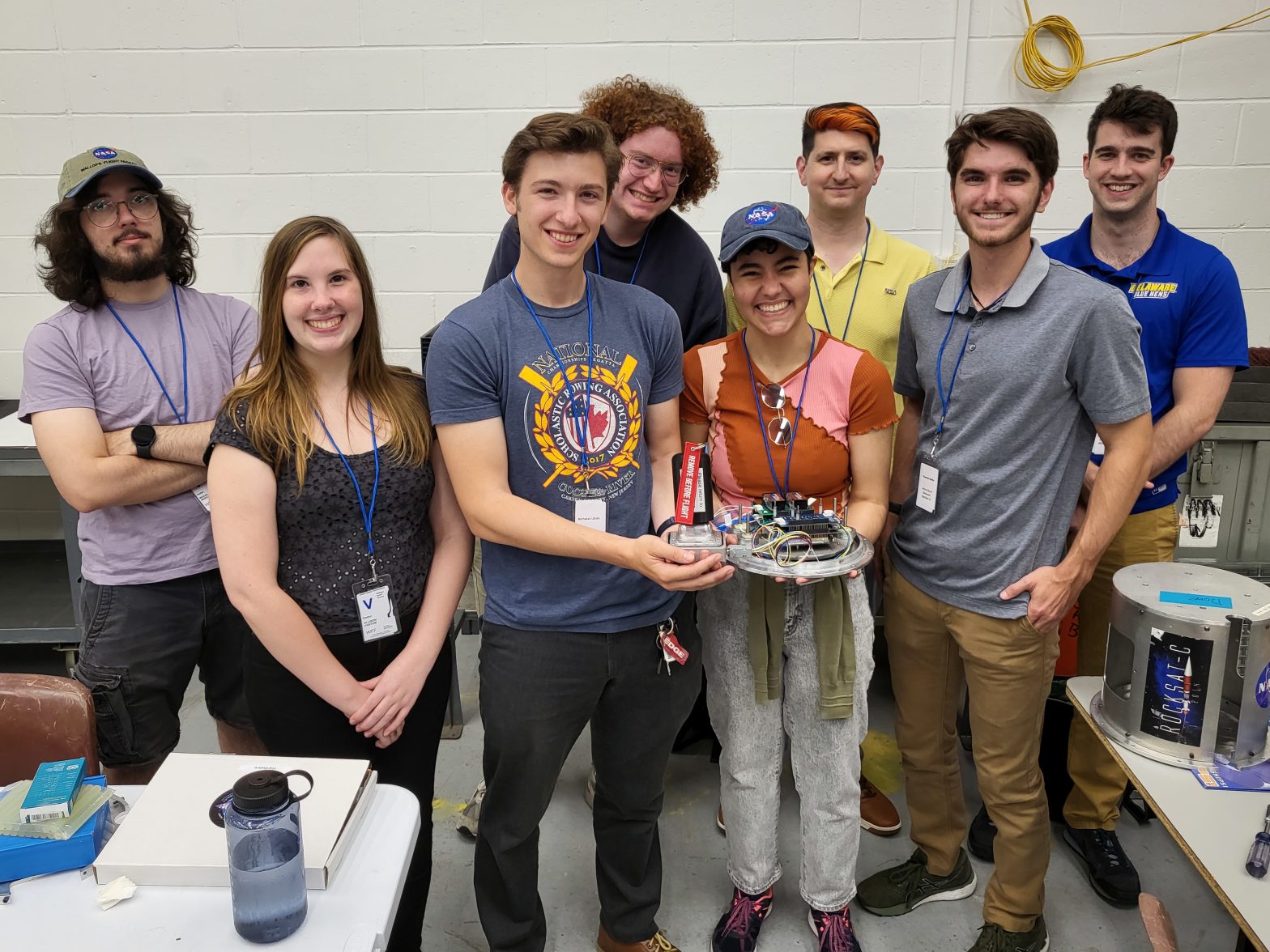
RockSat-C is a competitive program for students to design and build a sounding rocket payload, then launch the payload on a rocket from NASA’s Wallops Flight Facility in Wallops Island, VA. The program actively engages students through full design-process mentoring, assisting the teams through the design phase and leading them through testing, integration, and the Launch Readiness Review.
Throughout the 2022/23 academic year, Prof. Bennett Maruca and Mr. Jarod Dagney co-mentored a team of six from multiple departments at the University of Delaware. The students — Dax Moraes (lead), Isaac Chandler, Allie Fantom, TJ Kaifer, Miguel Mercado, and Nick Ulizio — developed the third version of the University of Delaware Ionospheric Probe (UDIP), which features a Langmuir probe (a type of plasma instrument) that is designed to measure the density and temperature of electrons is Earth’s lower ionosphere. This year’s team implemented significant improvements to the experiment, which included revisions to the digital and analog circuit boards, wholly rewritten ground software (for analyzing data), and a new “double probe” design for the Langmuir probe itself. Prof. Maruca and Mr. Dagney accompanied the students to the RockSat-C workshop in June and then to Wallops again in August since poor weather postponed the launch. After the experiment was recovered, the team determined that a power connector failed 15 seconds after launch. Most likely, the shock of the ignition from the rocket’s second stage knocked loose one of its wires. Despite this disappointing result, the students made excellent progress that is contributing to a strong foundation for the coming year’s UDIP team, which has just begun work.
The photo at the top shows the full 2022/23 team (students and mentors) with the experiment. Shown from left to right are: Miguel Mercado, Allie Fantom, Nick Ulizio, Isaac Chandler, Dax Moraes, Bennett Maruca, TJ Kaifer, and Jarod Dagney.


